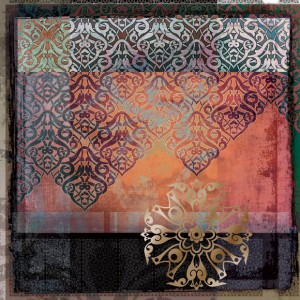Fall 2022: Interviews with refugees from Syria and Yemen, conducted by Duke students in partnership with NaTakallam, are now online, supported by Duke Service-Learning and the Focus Program.
Fall 2021: Interviews with refugees from Syria and Sudan, conducted by Duke students with the support of Duke Arts & Sciences Council Committee on Faculty Research and Duke Service-Learning and in partnership with NaTakallam: listen to audio projects from Syria and Sudan.
Fall 2020: Interviews with Palestinians from Gaza, Haifa, Hebron, and East Jerusalem, conducted by Duke students with the support of the David Paletz Fund, the Focus Program, Duke Service-Learning, and the Duke Arts & Sciences Council Committee on Faculty Research. Click here for the four audio projects from fall 2020!
Fall 2019: Interviews with Palestinians from the West Bank conducted by Duke students with the support of the Focus Program, the David Paletz Fund, and the Duke Arts & Sciences Council Committee on Faculty Research: Click here for the three audio projects from fall 2019!
Fall 2018: Interviews with Palestinians from the West Bank and the Diaspora, conducted by Duke students with the support of the Focus Program, the Trent Fund, and the Duke Arts & Sciences Council Committee on Faculty Research: Click here for the four audio projects from fall 2018!
–Nancy Kalow, Instructor, Center for Documentary Studies
Spring 2018: Interviews with Syrian and Iraqi refugees, conducted by Duke students with the support of Duke Service-Learning and in partnership with NaTakallam, are now posted: Syria; Iraq.
–Nancy Kalow and Maha Houssami, CDS and AMES
Fall 2017: Interviews with Palestinian university students and graduates, from the West Bank, Gaza, and the Diaspora, conducted by Focus students with the support of the Focus Program and the Duke Arts & Sciences Council Committee on Faculty Research: Click here for the five audio projects from fall 2017!
–Nancy Kalow, Instructor, Center for Documentary Studies
Spring 2017: Interviews with Syrians residing in North America, Europe, and the Middle East, conducted by Duke students with the support of the Vice Provost for the Arts and in partnership with NaTakallam, are online: Click here for the audio projects from spring 2017!
–Nancy Kalow and Maha Houssami, CDS and AMES
Spring 2016: Interviews conducted with the support of Humanities Writ Large at Duke are now part of Arabic Communities through the Refugee Lives Oral History Project. More info here!
–miriam cooke, Maha Housami and Nancy Kalow: Refugee Lives Oral History Project
Spring 2015: We invite you to learn about communities right here in Durham through the material archived on this site! With the help of Church World Service-RDU, Duke Service-Learning, and the Asian & Middle Eastern Studies Department, students engaged and formed relationships with Iraqi and Sudanese refugees who recently resettled in Durham. Students simultaneously were fortunate enough to listen to and record the stories of these courageous individuals with high hopes of sharing them with you! We encourage you to navigate our site so that you can too be moved by these resonant narratives, while gaining more insights into the refugee situation right here in our community!
–Malena Price, Trinity ’15, with miriam cooke, Maha Houssami, and Nancy Kalow, CDS and AMES.
About Us:
Documenting the Middle East: About the Course
Documenting the Middle East is a Freshmen Focus seminar. The class studies film, writing, photography, oral history, and other approaches to the documentary record of the greater Middle East. The class examines a variety of documentary case studies, among them the Algerian revolution, the Iranian revolution, the Arab Spring in Cairo, the 2003 invasion of Iraq, pilgrimage in Karbala, and war in Lebanon. Students also carry out a documentary audio project.
Documenting Palestine: About the Course
Documenting Palestine is a Freshmen Focus seminar. The class studies the documentary record of Palestine in photography, film, and oral history, beginning with studio photography of the late nineteenth and early twentieth century and concluding with recent community-based, experimental, and student documentary production. How do communities in diaspora document themselves, and what is the role of social media in documentary research? Students also carry out a documentary audio project.
Refugee Lives: About the Course
Refugee Lives is an interactive learning course that allows students with a diverse range of academic and extracurricular backgrounds to connect with and understand aspects of the life of a refugee. Over the past four years, students have conducted oral history interviews with refugees all over the world and in the Durham community. To complement their interpersonal interactions with the refugees, students engage with readings, films, and guest lecturers to understand many complex aspects of asylum-seekers, displaced persons, and refugees who are forced to uproot their lives. Students carry out interviews in order to tell stories so often left untold.
The 1951 Refugee Convention spells out that a refugee is someone who “owing to a well-founded fear of being persecuted for reasons of race, religion, nationality, membership of a particular social group or political opinion, is outside the country of his nationality, and is unable to, or owing to such fear, is unwilling to avail himself of the protection of that country.”
Amnesty International describes a refugee as a person who fled from their own country due to human rights abuses that they have suffered there because of who they are or what they believe in, and whose own government cannot or will not protect them. As a result, they have been forced to seek international protection. Refugee rights include:
- protection from being forcibly returned to a country where they would be at risk of persecution.
- protection from discrimination
- protection from penalties for illegal entry
- the right to work, housing and education
- the right to freedom of movement
- the right to identity and travel documents
According to Article 14 of the Universal Declaration of Human Rights, everyone has “the right to seek and to enjoy in other countries asylum from persecution.”
